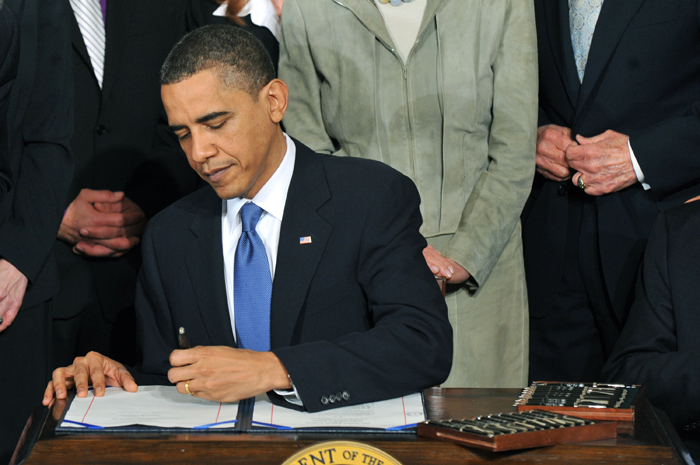President Obama has been studiously mum about the proposals laid out Wednesday by his fiscal commission’s co-chairs, Erskine Bowles and Alan Simpson. In fact, he urged critics of the report to hold their fire for now.
“Before anybody starts shooting down proposals, I think we need to listen, we need to gather up all the facts, I think we have to be straight with the American people,” he said.
But would he be so blasé if he knew that the draft, as written, would require scrapping or destroying his signature health care law?
That’s the view of prominent economists who’ve examined both the Simpson-Bowles plan and the health care law. Wednesday’s plan calls for strict limits on federal health spending and the amount of revenue the government can collect via taxation. But the Affordable Care Act expands insurance coverage by increasing both taxes and spending and, with health care costs soaring, it would have a hard time meeting the commissioners’ requirements.
“In an aging population there is no way health care spending is going to grow that slowly–unless we get rid of not just the [health care law] but Medicare as we know it as well,” said UC Berkeley economist and former Clinton Treasury official Brad DeLong.
Specifically, the plan calls for limiting growth in total federal health spending (Medicare, Medicaid, the health care law) to a rate of GDP-growth plus one percent. It also calls for bringing all spending down to 21 percent of GDP and capping revenue at that same level. Meanwhile Medicare costs are soaring and the government is about to add many billions in revenue and spending to its ledger when the health care law’s main provisions take effect. That would mean, according to economists, that the law would either have to change significantly, or it would have to go.
“The only way you can do it is by having a radical deterioration in the quality of care,” says Dean Baker, a progressive economist at the Center for Economic and Policy Research. If that doesn’t happen, the health care law would have to change or be scrapped in favor of one that required dramatically less federal spending (as Republicans have called for) — and Medicare would be in for a similarly severe overhaul.
Henry Aaron, a health care expert at the Brookings Institution, takes a less dire view.
“I think that [the health care law] puts so much of the health care delivery and payment system in play that the plausible range of outcomes spans huge savings below estimated costs and huge overruns beyond what is scored,” Aaron says in an email. “This uncertainty holds both for federal spending and for system-wide spending.”
A staffer at the commission points out that the chairmen left the details of the revenue cap, to say nothing of its enforcement mechanism, intentionally vague — to be fleshed out or changed by the other members. The aide adds that, in a way, the recommendations double down on one part of the health care law. The Affordable Care Act creates an independent panel designed to bring Medicare costs growth down to GDP plus one percent — just like the commission calls for. If that advisory board is successful — a huge if — yesterday’s recommendations wouldn’t bode so poorly for Medicare.
Obama has threatened to veto any attempts to repeal or gut his health care law in the past. But he also insists he was elected to make “hard choices.”
“I set up this commission precisely because I’m prepared to make some tough decisions,” Obama said overnight.
The question today is: Even if those decisions bind him to undo his own legacy?










